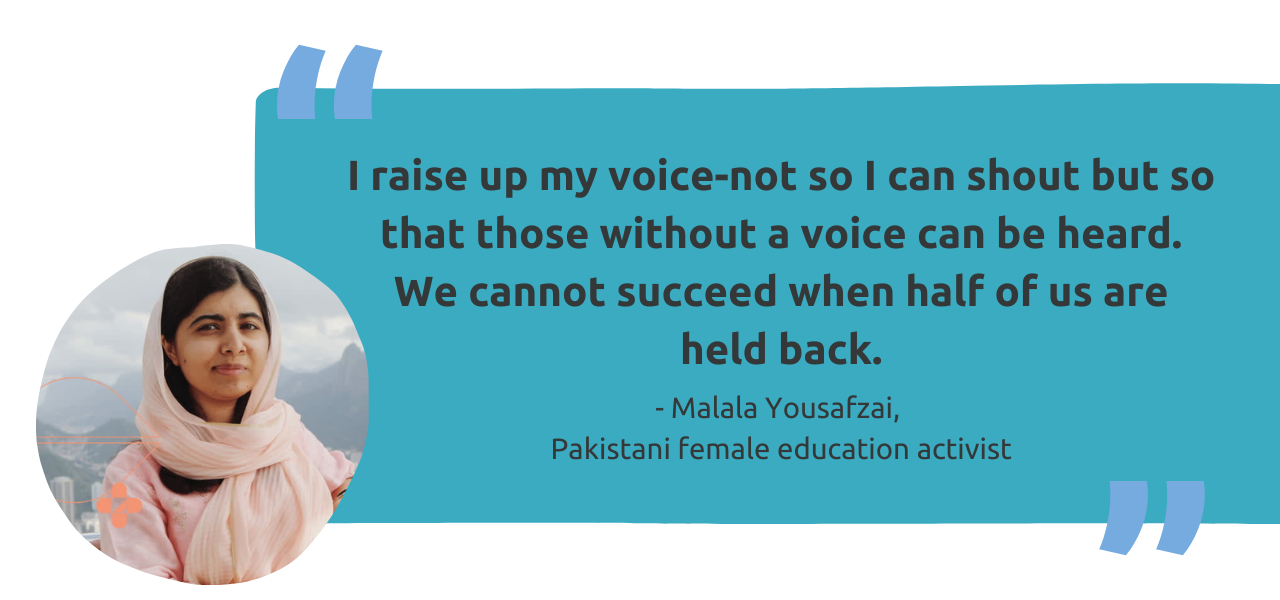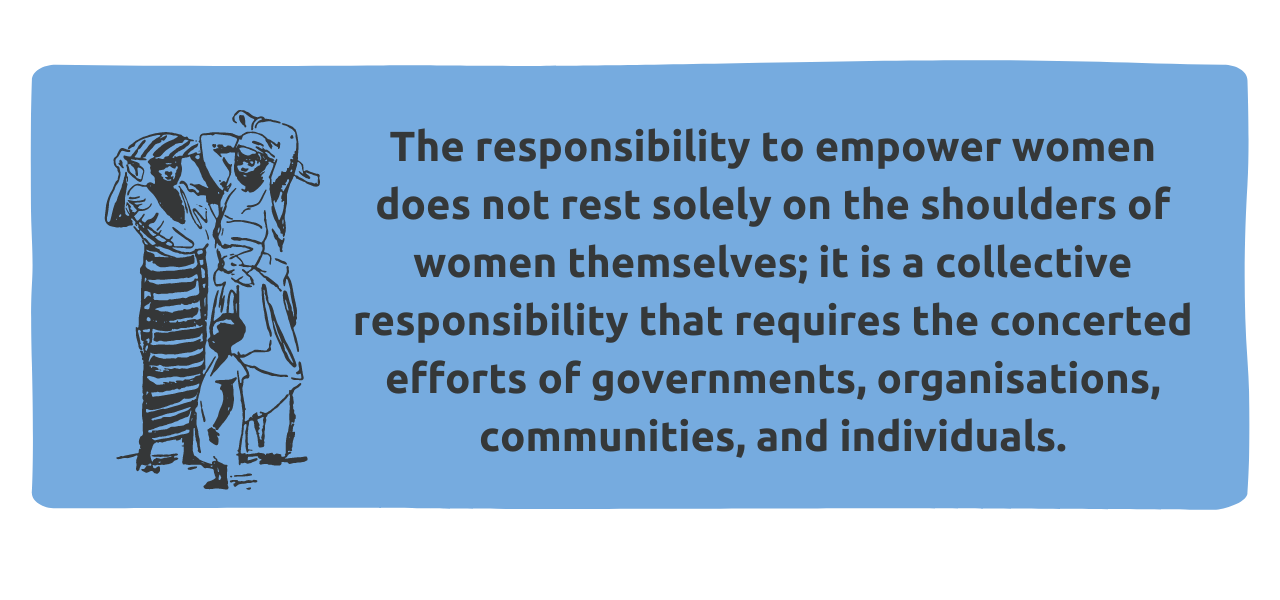Empowering Women for a Thriving Future
In the dynamic landscape of the 21st century, a remarkable journey towards equality is unfolding. Moments of triumph, like the rise of female leaders and life-saving initiatives, showcase the power of collective determination. Yet, amidst these victories, we cannot overlook the hurdles still blocking the path to true parity.
Women encounter disparities in job opportunities, fair pay, and safety from violence. Limited access to education and healthcare further restricts their potential. But there is hope.
Women's empowerment holds the key to transforming our world.
By exploring its profound impacts on economies, societies, and communities, we can unlock the door to a brighter, more just future for everyone.
Challenges on the Path to Equality
In less than three decades, our world has witnessed historic milestones, including the inauguration of a female U.S. vice president and the emergence of ninety-eight female heads of state, representing diverse nations worldwide.
Moreover, our unwavering commitment to tackling maternal mortality has produced promising outcomes, thanks to transformative initiatives like the Global Financing Facility (GFF) and the Every Woman Every Child Initiative. These initiatives have played a crucial role in saving countless lives over the last two decades.
However, there is still much progress to be made in the pursuit of equality.
In a world where women represent 49.74% of the global population, it is disheartening to witness disparities that continue to hinder their progress.
According to a 2022 report by the World Bank, males boast an 80% global labour force participation rate, while women find themselves lagging behind at just a little over 50%.
Numerous reports reveal alarming trends, with women being less likely to secure formal employment, facing unjust underpayment, and encountering limited opportunities for meaningful career advancement and business expansion.
The statistics are telling: despite constituting 66% of the global workforce and producing 50% of the world's food, women only earn a meagre 10% of the income and possess a mere 1% of the property.
Additionally, a staggering 70% of the 759 million uneducated people worldwide are women, emphasising the urgent need to dismantle barriers to education access and gender equality.
In the area of security and gender-based violence, a sombre reality persists.
In South Africa, there are alarming rates of gender-based violence (GBV), intimate partner violence, and femicide.
According to the South African Police Services records, a staggering 2, 930 women lost their lives between 2019 and 2020 to violence.
To put it in perspective, this equates to approximately 244 women being killed each month in South Africa.
Further, according to the 2016 South African Demographic and Health Survey (SADHS), 21.5% of women aged 18-74 acknowledged experiencing physical abuse, while 8.8% reported experiencing sexual abuse. Sadly, due to fear, shame, and tedious reporting processes, many cases of gender-based violence remain unreported. As a result, the actual figures could be even higher than those recorded.
These distressing statistics underscore the pressing need to empower women by providing them with education, academic support, financial resources, and essential skills to navigate the challenges they face in society.
Why Women’s Empowerment Matters
What unites Monaco, Switzerland, and Norway?
According to Investopedia’s data, these three countries are thriving developed nations boasting high GDPs and low infant mortality rates. However, a crucial shared factor among all three nations is the notable rise of women in the workforce and their unwavering focus on empowering women and young girls.
Extensive research confirms an indisputable connection between women’s empowerment and economic development. As highlighted in a 2020 World Economic Forum report, nations where women actively participate in various societal roles demonstrate higher economic competitiveness and innovation.
Developed countries have successfully harnessed the potential of women by prioritising girl-child education and fostering supportive work environments. The results are evident in the form of economic growth, reduced poverty, and an improved standard of living.
Compelling evidence further emerges from a World Bank report, revealing that heightened female labour force participation can propel a country’s GDP to a remarkable 35%. This emphasises the significant impact women’s empowerment can have on a nation’s overall prosperity and well-being.
American Human Rights Activist Malcolm X once said: "When you teach a man, you teach an individual, but when you teach a woman, you raise a nation.”
Recent research conducted by the United Nations lends credence to Malcolm’s insight, suggesting that his words extend beyond mere rhetoric. According to the report, women reinvest approximately 90% of their income into their families, while men reinvest only 30-40%.
Empowerment of women and girls yields broad positive impacts, reaching beyond the economy. Studies reveal that:
Children with literate mothers have a 50% chance of receiving immunizations and living beyond the age of 5.
Promoting girl-child education significantly reduces the likelihood of experiencing intimate partner violence later in life; educated girls are also 6 times less likely to become child brides.
Empowering women through education about their bodies and reproductive health enables them to make informed decisions about their well-being and their families. This, in turn, leads to a decrease in maternal and infant mortality rates.
Companies with equal female representation at the executive level have shown to be 21% more profitable than their non-diverse counterparts.
Women’s active participation in peace treaties and moderation processes leads to more favourable agreements that are likely to endure for at least 15 years.
Evidently, empowering women and girls is not just a matter of equality; it is a transformative force that shapes a better world for everyone, fostering healthier communities, stronger economies, and more peaceful societies.
Factors Hindering Women and Girls’ Empowerment
Despite women's pivotal role in society, several barriers prevent them from fully participating in the global landscape. Some of these factors include:
Workplace Disparities: Due to factors such as wage gaps, discrimination in the workforce, lack of opportunities for career advancement, sexism, and limited access to funding and resources, many women encounter barriers when attempting to enter certain fields or reach the pinnacle of their careers.
Social Norms, Cultural Barriers, and Gender Stereotypes: In some traditional societies, girl-child education remains neglected due to deeply rooted misogynistic beliefs. These norms dictate that men solely focus on earning money, while women are expected to handle household responsibilities and child-rearing. As a result, women face limited opportunities, hazardous financial and social circumstances, and the global economy suffers significant losses.
Limited Access to Healthcare and Stifled Reproductive Rights: According to the World Health Organisation, nearly 300, 000 women lose their lives each year due to pregnancy-related complications, leaving a profound impact on their families and the world. Pregnancy and motherhood also bring unexpected challenges like baby blues, anxiety, and postpartum depression, affecting about 10% of pregnant women and 13% of new mothers. Ensuring adequate mental health care in post-pregnancy care is crucial. Additionally, the shame and stigma around period poverty lead to many girls skipping school during their periods, depriving them of essential academic opportunities.
Lack of Information: Knowledge is a powerful tool that protects us from deception and manipulation. When women lack information about their options, they are hindered from fully participating in political and social matters, leading to poor decisions regarding their future, reproductive health, and employment opportunities. Empowering women with knowledge is essential to break down barriers and enable them to make informed choices that shape their lives and contribute to a brighter future.
Pathways to Progress
Empowering women requires comprehensive and united efforts since the challenges they face are complex and widespread.
To address this, the Foreign, Commonwealth and Development Office (FCDO) advocates three key thematic priorities in the pursuit of women and girl-child empowerment:
educating girls,
empowering women and girls by championing their health and rights; and
ending gender-based violence.
At The Dandelion Philosophy, empowering women and girls is a crucial part of our mission.
We achieve this by:
Creating judgment-free spaces for women to share their stories and enlighten the younger generation.
Organising collective prayer events to foster a sense of community.
Establishing safe spaces, like khutsas (traditional houses), for women and children.
Encouraging entrepreneurship and providing career opportunities in cooking, feeding, baking, and farming, empowering women to give back to their communities.
Offering mental health interventions to address intergenerational trauma and promote overall well-being.
Educating females about their human and reproductive rights, ensuring they are treated with dignity in their communities and relationships.
Raising awareness about the significance of girl-child education and challenging harmful gender stereotypes.
By advocating for policies and initiatives that promote gender equality, supporting women-owned businesses, and actively challenging gender norms and stereotypes, we contribute to a more inclusive and equitable world.
Empowering women is not just a moral imperative; it is an essential step towards building a brighter and more prosperous future for all.
When women are given the tools, opportunities, and support they need to thrive, they become agents of positive change, shaping a world that benefits everyone. Let us all embrace this responsibility and work together to create a future where gender equality is not just an aspiration, but a reality we all cherish and uphold.
To learn more about The Dandelion Philosophy’s unique approach to tackling pressing social issues visit our website here.







